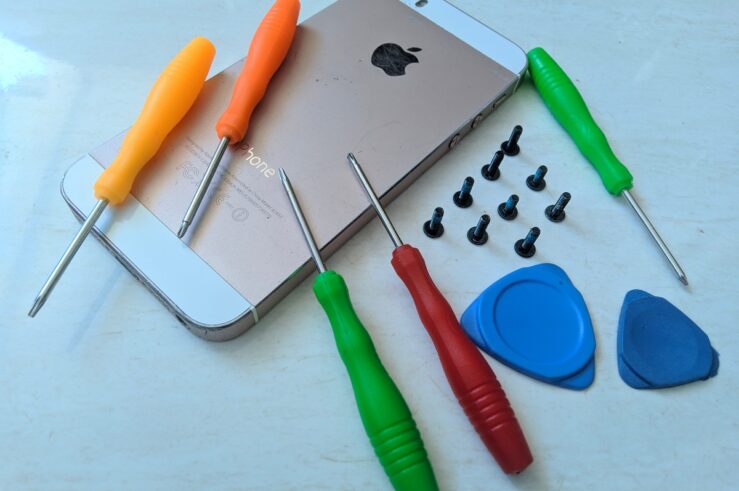It’s almost impossible to read an article or blog posting today about patents that doesn’t complain that “the patent system is broken.” It’s especially prevalent in reports on high-tech patents, software patents, or the “smart phone wars.” (I’m not hyperlinking here, because there’s just too many examples to choose between.) In fact, the din on the increasingly clichéd statement that “the patent system is broken” is really reaching histrionic proportions. It’s even prompted Patent Commissioner David Kappos to appeal to “those reporting and commenting on the smartphone system patent wars” to “move beyond the flippant rhetoric and instead engage in thoughtful discussion.”
Although it’s tempting to think that Commissioner Kappos is engaging in his own bombastic exclamations in his criticism of “flippant rhetoric,” it’s unfortunately true. Here’s just one relatively recent example from the venerable New York Times, called “Apple Now Owns the Page Turn,” by Nick Bilton.
In this brief article, Mr. Bilton decries that Apple “now owns the page turn” in ebook readers with its recently issued design patent (D670,713). Proclaiming that this is proof of “how broken the patent system is,” Mr. Bilton informs his readers that this design patent “gives Apple the exclusive rights to the page turn in an e-reader application.”
No, Mr. Bilton, it does not, and the NY Times should be embarrassed that such ignorant proclamations continue to be published under its masthead, including the blatantly biased and equally ill-informed hit piece on software patents published by the Old Gray Lady last October.
When most people talk about patents, they usually are speaking about a utility patent, which do secure exclusive property rights in new technology and discoveries. But there is an entirely different type of patent, called a design patent. Despite legal requirements that superficially sound similar, such as requirements of novelty and nonobviousness, design patents are entirely different from utility patents.
If Mr. Bilton had bothered to do even the minimal amount of research that most college undergraduates do today, say by checking Wikipedia’s entry on design patents, he would have discovered that it is certainly not true that Apple has “exclusive rights to the page turn in an e-reader application.” Despite Wikipedia’s well-deserved reputation for ill-informed entries, it actually has a good, succinct summary of design patents, describing briefly the differences between design patents and utility patents, and it even cites some classic examples from 150 years ago, such as design patents on famous fonts, the design patent on the statue of liberty, etc.
So, if Mr. Bilton had bothered to take five minutes to check Wikipedia before writing his NY Times posting, he would have learned that design patents are not patents on functional technology, but rather secure only non-functional, ornamental designs. For the sake of this vaunted NY Times writer and the many people he has mislead, I’ll repeat the most important word here in the definition: non-functional. Thus, Apple does not own e-book page-turning technology nor does it own the function of turning pages in an e-book reader. What this design patent secures is the novel ornamental design Apple has developed for its particular e-book reader, and it’s limited to exactly this particular ornamental design — no more, no less. For anyone even semi-aware of Steve Jobs and Apple Computer — an innovative person and his company who recognized the fundamental role and value of artistic design in computer technology since 1984’s release of the famous Macintosh computer – it should hardly be surprising that it is protecting its IP rights in these innovative design features.
Instead, Mr. Bilton negligently suggests that Apple could sue other e-book readers for their page turning technology because it now has “exclusive rights to the page turn in an e-reader application,” but this is patently false (pun intended). And Mr. Bilton is clearly negligent here and his mistake is entirely his fault, because in the second paragraph of his NY Times report, he explicitly identifies Apple’s patent as a “design patent.” This is significant, because everything he writes in his report after saying “design patent” is 100% wrong by mere dint of this term, because everything he writes after this wrongly assumes that Apple’s patent is a “utility patent.”
(As an aside, this design patent might be invalid, but Mr. Bilton provides no information or facts to make this judgment, because all of his high-handed rhetoric is based on the assumption that it is a utility patent. Of course, if this was a utility patent, it would be invalid, as ebook readers that change pages have been around for many years, but what of the particular ornamental design of this ebook reader? One will search in vain in Mr. Bilton’s report for any information on this all-important question.)
Admittedly, there is much confusion today about the patent system, and much of this confusion is caused by misleading reports like those written by Mr. Bilton. Of course, there are some good reporters and bloggers, who are commenting sensibly on the “smart phone wars” and other issues in the public policy debates over patents today. But, unfortunately, Mr. Bilton represents a far larger cadre of reporters and bloggers who spread confusion and misinformation about the patent system and about the “smart phone war” in particular.
The real problem with this “broken reporting” by Mr. Bilton and his ilk is that it is feeding a growing anti-patent frenzy among commentators, academics, and the public, who seem to think that your smart phones, tablets and other technological marvels just don’t exist because of a so-called “broken patent system” that has stymied software and other high-tech innovation at every turn. I’m glad to see that some people, like Commissioner Kappos, the Honorable Paul Michel, and the Honorable Randall Rader, are starting to push back against this “broken reporting” on the patent system.




